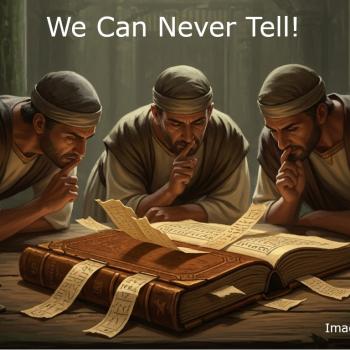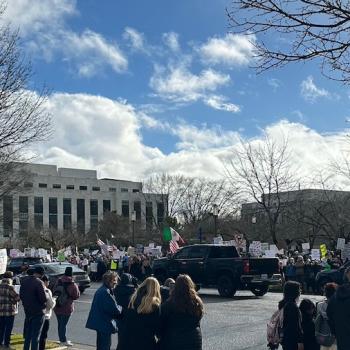Interestingly, I have never once heard a military chaplain preach on homosexuality. Nor have I heard any military Christian volunteer a moral judgment about it in a military gathering, even an off-duty one. My experience has been that, in the ranks of responsible officers and NCOs, everyone generally keeps his opinions to himself. There is no pattern of pointed readings of Leviticus 18 or Romans 1:24-27. Christians don't all agree, for that matter, on the causes and origins of homosexuality, or on the most scriptural posture to be adopted toward it in practical terms.
But the Los Angeles policeman's plight was a result of the offense taken by gay officers at the specific verses he read from 2 Corinthians. With openly gay service in the military, advocacy groups will assume the standing to object not just to Christians, but to the Bible itself. The method of choice to date has been holding Christians' career opportunities in a sort of institutional limbo.
Christians are promised that they will have to suffer for the gospel of Christ. But there is no unified Christian position on what to do about each challenge mounted by radical activism to the individual conscience. Christians are not "against" homosexuals. If they regard homosexuality as a sin, what courses of action does that indicate in the institutional situations that might arise? In the social ones? There is no explicit guide, nor has the organized church given much thought to the prospect of Christians being required to live and work in intimate quarters with the openly, and even politically, homosexual. These conditions are different from what civilians have experience with: in the military, there is no option of distancing or separating yourself according to your personal preferences.
I don't think it will be obvious to outside observers what each person "should" do in each set of circumstances, whether they involve family life, professional life, or the life of faith. Mercy should trump judgment, but where to take a stand will be a situational decision, not prescribable by third parties. I would urge chaplains and their sponsoring denominations to give this matter consideration, however, because if DADT is lifted, their uniformed flocks will very soon begin seeking guidance on it.
I‘ve stated often that I think openly gay service could be administered successfully if it were left to the pragmatic, non-political judgment of military leaders. But it won't be. It will be a heavily politicized issue: it will have commanders looking over their shoulders and will therefore pose moral quandaries for Christians and other social conservatives. It will be essential for Christians to keep in mind that the moral struggle is not against flesh and blood -- not against our fellow humans. And frankly, that will be hard. If DADT is lifted, we will be asking much more of our uniformed service members -- and their families -- than we in the civilian world have to handle. We'll be asking it in one of the most sensitive areas of human life. As the Optimistic Christian, I can see tremendous opportunities for witness and spiritual triumph in this prospect. But for at least some individuals, the opportunities could well present themselves through a tour in the lion's den.





